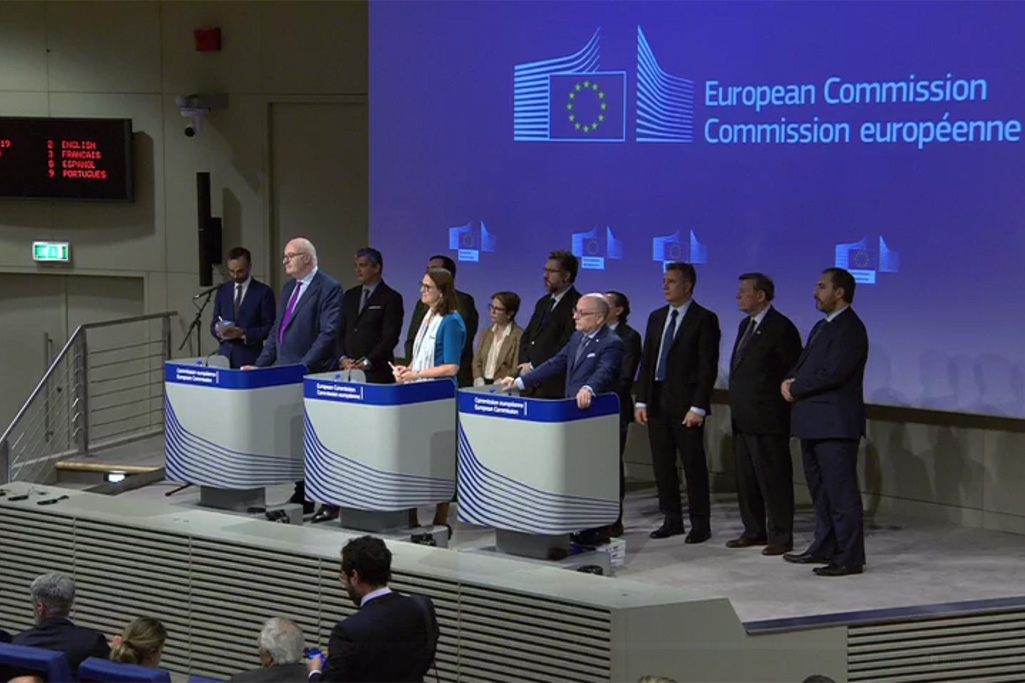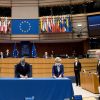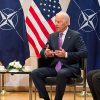
On the 28th of June 2019, after two decades of negotiation, a historic trade agreement was struck between the European Union (EU) and the Mercosur trading bloc (Argentina, Brazil, Paraguay, and Uruguay). The awaited agreement is set to strengthen trade and political ties, as well as being an opportunity for the European Union to reassert its position on the international stage by reinforcing rules-based trade.
The Trade Agreement is undergoing a legal review and must be approved by European Parliament and national Parliaments of the four Mercosur countries, before starting the implementation process. However, progress has been on hold for almost two years. Several member states seem reluctant to move forward, due to opposition from European farmers, who fear unfair competition, and environmentalists, concerned with the risk of higher deforestation of the Amazon.
The EU should not let 20 years of negotiations with the South American bloc go to waste, not only because it will boost trade expansion on both sides, but also because of its geopolitical strategic value. The agreement offers the EU a unique opportunity to have a positive impact on sustainable development in the South American region. Moreover, if missed, China’s political and economic influence in Mercosur, which has shown a blatant disregard for sustainable development, looks likely to continue its unbridled growth.
What is the Agreement about?
The EU-Mercosur Agreement is the EU’s largest trade agreement, expecting to boost bilateral trade and economic integration between the two regions. It envisages the removal of trade tariffs between the two areas, as well as including provisions that facilitate trade in services and the liberalisation of public procurement processes.
Under the Agreement, Mercosur will remove tariffs on 91% of the goods imported from the EU, including key exports such as vehicles (35%) and machinery. In return, the EU will exempt duties on 95% of goods imported from Mercosur, along with 83% of agricultural imports. To protect European farmers, 357 traditional European products recognised with Geographical Indicators (GI) will be protected against counterfeit products in the South American countries.
To facilitate trade in services, which is expected to grow faster in the post covid-19 world, the Agreement has included provisions that reduce non-tariff barriers. Both sides will simplify their customs procedures and strengthen their collaboration on standards and technical regulations, offering greater legal certainty and a level playing field.
Furthermore, the treaty upholds the liberalisation of public procurement processers by both parties. Hitherto, Mercosur countries have not allowed third country’s access to their public tenders. EU firms will be the first non-Mercosur business to have access to these processes.
In line with the model of trade agreements imposed in recent years, the treaty includes provisions for safeguarding the environment and labour standards. It is based on the premise that trade should promote sustainable development.
Why does the Agreement matter?
The EU-Mercosur agreement will open huge opportunities for trade expansion to both sides, as well as giving the EU geopolitical leverage over Mercosur, in regards to environmental protection and climate change.
The agreement promises to be the EU’s largest deal, creating an integrated market of 780 million consumers and saving European exporters around EUR 4 billion of import tariffs on its produces. Mercosur has more than 260 million consumers and, taken as a group, is the fifth-largest economy outside the EU with an annual GDP of EUR 2.2 million.
The EU could conclude the most important free trade agreement for the South American economic region. After China, the EU is Mercosur’s second most important trading partner, representing 20% of goods trade. Moreover, Mercosur has been internationally isolated. The only three free trade agreements signed by the bloc, apart from those existing within the so-called ALADI framework (Latin American Integration Association) and those currently under negotiation, are with Israel, Egypt, and Palestine, countries economically irrelevant.
The agreement is notably important for the EU because of Mercosur’s high tariff barriers in key areas of bilateral trade. The EU has a comparative advantage over Mercosur in the supply of higher technology content, thus European exports mainly comprise of chemicals, pharmaceuticals, machinery, vehicles, and electrical products which are currently subject to high tariffs. The removal of these tariffs would boost European export in these areas.
Furthermore, a free trade agreement of the scale of the EU-Mercosur’s agreement could be a key step for the EU to reassert its leadership on the world stage, in the context if its renewed trade strategy. It commits both parties to cooperate on environmental issues, such as the fight against deforestation in the Brazilian Amazon. The EU could set an example of sustainable trade regulations, and work with Mercosur countries on a sustainable development model. As the Agreement offers a unique opportunity for the EU to have a positive impact on the environment and sustainability in the region. If the agreement is not attained, China who has a maturing relationship with Latin America, but has less interest in promoting a sustainable agenda could step in.
Ratification problems
It has been two years since the EU and Mercosur signed the Agreement, yet it is unclear when –or whether– it will be ratified. Mercosur official has launched an urgent call for the entry into force of the agreement, arguing that a delay would jeopardise the potential for business opportunities. Meanwhile, the EU has turned cold on the Agreement, as a growing number of member states have expressed strong reservations about ratifying the Agreement, due to farming and environmental concerns.
Brussels is split between those who are hostile towards the EU-Mercosur Agreement, due to farming and environmental concerns, and those who want it to go ahead.
The European agricultural sector, particularly in France, Belgium, and Ireland, are concerned that the agreement will increase agricultural exports from Latin America, to the detriment of European farmers.
Several member states, MEPs, and civil society organizations are apprehensive over the combability of the EU-Mercosur Agreement with the Paris Agreement, and the environmental impact it may have on deforestation of the Amazon. Furthermore, many are sceptical of Brazil’s commitment to tackle climate change under Jair Bolsonaro. Austria has taken the lead, with “no to Mercosur” written into its new government accord.
Defenders of the agreement hold that environmental concerns are a mask of European protectionism. Portugal and Spain have been two of the main supporters of the pact. Portugal, made concluding the deal a priority of its presidency of EU affairs, asserting that Europe’s credibility was at stake. Spain has played an important role in advocating for the agreement. In 2010 it led an initiative to accelerate the agreement and in 2019 it gave the final push for it to be concluded. Prime Minister Pedro Sánchez has urged the European Commission to move forward and unfreeze progress on the Mercosur pact. Because of their linguistic and cultural ties with South America, it is likely they will be some of the biggest beneficiaries of the agreement.
However, despite Spain and Portugal’s efforts, the upcoming election in Germany and France may slow down ratification, as a result of French farmer’s sway within the political system, and Green parties becoming increasingly influential in Germany and France.
French President Emmanuel Macron has taken a stance against the Agreement, claiming it is incompatible with EU environmental goals. However, given that France has regularly expressed concerns over the risk of a surge in South American agricultural export to Europe, and the countries’ traditional agricultural protectionism, proponents of the agreement have questioned whether Macron’s real concern is for the Amazon or the interest of powerful farmers, ahead of the election. Either way, it is unlikely that France will push the deal during Macron’s campaign for re-election as it could cost him support.
Due to the strong interest from Germany’s automobile and chemical industries, the country was initially particularly keen on signing the Agreement. The German position slightly changed in the summer of 2020, following the wildfires in the Amazon, however, Merkle’s administration seems to remain committed to the accord. German Foreign minister Heiko Mass assured that they wanted to see the agreement come to fruition and expressed the need to continue the process of dialogue between the two blocs. Nevertheless, the growing support for Germany’s Green Party, which oppose the trade deal, could slow down ratification.
Conclusion
At this point, it is questionable whether the Portuguese EU presidency, which ends in July 2021, will be able to ensure implementation of the EU-Mercosur Agreement. As public opinion increasingly favours halting talks, France and Germany might be cautious of signing the agreement so close to elections. However, there might be a window of opportunity for ratification of the agreement after the elections.
To miss this trade opportunity would be a mistake for the EU. As it has the potential of opening immense economic opportunities for both blocks, as well as giving the EU additional leverage to bind South American countries to the Paris Agreement and restrict influence from China, a bigger threat to the Amazon.

